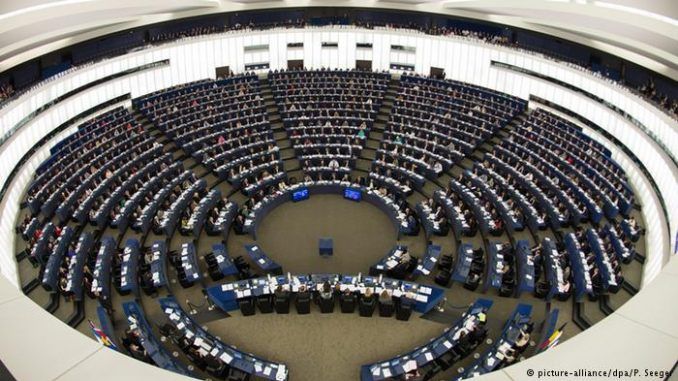
The European Parliament has voted in favour of net neutrality regulations, allowing for a two speed style internet across Europe.
MEPs voted down four proposed amendments to the regulations that critics said would have closed loopholes in the regulations.
Wired.co.uk reports:

BYPASS THE CENSORS
Sign up to get unfiltered news delivered straight to your inbox.
You can unsubscribe any time. By subscribing you agree to our Terms of Use
Matt Carthy, MEP for Sinn Féin, said the defeat of the amendments showed that “corporate interests come first”.
Critics of the unamended draft regulations had argued it would allow companies to pay for preferential treatment from ISPs and damage the free and open nature of the internet. The vote also confirms that mobile roaming charges will cease to exist across Europe by 15 June 2017.
Julia Reda, MEP for the Pirate Party in Germany, said the votewould allow for the creation of a “two speed” internet in the European Union.
“We are disappointed that the European Parliament has decided not to legislate on this critical issue,” said Estelle Massé, policy analyst at human rights organisation Access Now. “By not supporting the necessary amendments to give clarity to the text, the Parliament has left it up to courts and national regulators to determine its meaning.”
in favour of stronger net neutrality had proposed four different amendments that they say would have increased the strength of the law, which was eventually passed.
The rejected amendments included proposals that would have ensured there was no network discrimination, all internet traffic would be treated equally, ISPs would not be allowed to become gatekeepers, and ISPs would have only been allowed to manage traffic when it was congested.
Günther Oettinger, the commissioner in charge of the Digital Economy and Society in the EU, said the vote would “deliver tangible results to improve the daily lives of Europeans”.
“We will get for the first time ever net neutrality rules in EU law,” he said. “These rules protect the right of every European to access the content of their choice, without interference or discrimination.”
Tim Berner-Lee’s Web Foundation went as far to say that Europe’s decision on the issue took it a “giant step” away from being a “leader in the digital economy” and that the decision would “threaten innovation and free speech”.
Today’s botched #netneutrality rules take Europe a giant step back in the digital economy. https://t.co/pTVnHy3DQj
— Anne Jellema (@AFJellema) October 27, 2015
“Now, European start-ups may have to compete on an uneven playing field Against industry titans, while civil society groups small risk having Their voices overwhelmed by well-funded giants,” said the Foundation’s CEO, Anne Jellema.
Other critics of the regulations included leading technology firms such as Reddit and WordPress. The Electronic Frontier Foundation (EFF), which also campaigned against threats to net neutrality in the United States earlier this year, said the regulations were potentially damaging.
But Jeremy Malcolm, senior global policy analyst at EFF, told WIRED that “overall Europe is in a better position today than it was yesterday.” He said that although the amendments being voted down were “disappointing” the laws passed resulted in consistent net neutrality regulation across Europe for the first time.
“The disagreement is around the edges, the extent to which loopholes can be miss used for purposes that go beyond legitimate network management,” he said. “Those loopholes may or may not be exploited but I guess we will see as this rolls out.”
EDRi, a coalition of 31 European privacy and civil rights organisations, said MEPs had “avoided making decisions on all crucial points” of the legislation.
“Now, national regulators will have to decide – on abuses imposed through ‘zero rating’, on rules on congestion management, on specialised services and so on,” said Joe McNamee, ERDi’s director. Alliance of Liberal Democrats MEP Marietje Schaake said her colleagues had “missed an opportunity” to impose stronger net neutrality regulations.
The next step for the legislation will see the Body of European Regulators (BEREC) issue guidelines to national bodies — Ofcom will be responsible in the UK


Be the first to comment